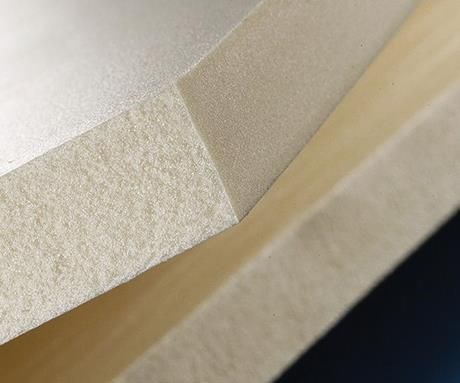Additive Boosts PP’s Tensile Strength, Heat Deflection and Flex Mod
The company’s approach involves the use of zinc salts, a new class of polyolefin additives.
The interest in polypropylene with higher melt strength appears only to be building, particularly with regard to the production of a variety of high-performance foams, such as for specialty packaging, but also for such non-foam applications as large-part blow molding, large-part thermoforming, profile extrusions, and extrusion coating.
Just within the last year, we have reported on the entry of two new polyolefin suppliers who have entered the high-melt-strength polypropylene (HMS-PP) business: Total Petrochemicals & Refining USA, Inc., which is the first to produce HMS-PP domestically—producing the material at its LaPorte, Texas, site; and, more recently, Braskem (U.S. office in Philadelphia). Up until 2015, HMS-PP resin was being imported from Austria’s Borealis (U.S. office in Port Murray, N.J.).
But, there is another ways to achieve higher melt strength in PP: additives. At next week’s 2017 SPE International Polyolefins Conference in Houston, which I’m looking forward to attending, Total Cray Valley (TCV) (U.S. office in Exton, Penn.), is presenting a paper on its new technology for improved PP melt strength.
According to TCV’s Global Business Development Manager Anthony Marozsan, its new Dymalink coagents—now globally available commercially, are comprised primarily of inomeric zinc salts, which reportedly represent a new class of polyolefin additives with a novel set of performance attributes.
The addition of zinc salts to conventional PP at low loadings (e.g., 1%) is said to result in improved tensile strength, heat deflection temperature (HDT) and flexural modulus. Melt strength of PP is said to be enhanced with very few observed drawbacks. This is said to allow greater flexibility to tailor compounds to specific end-use requirements versus the use of conventional HMS-PP.

Related Content
-
Intrinsic Viscosity Enhancer for rPET and PET Food-Contact Applications
Nexam’s Nexamite MO2100 rebuilds molecular weight and increases IV to enable upcycling of rPET.
-
Additives Boast Sustainability Without Sacrificing Performance
Sustainability continues to dominate new additives technology, but upping performance is also evident. Most of the new additives have been targeted to commodity resins and particularly polyolefins.
-
SI Group Gets FDA Approval Extension for Weston 705 & 705T
SI’s phosphite antioxidants get ‘green light’ for use in PET food-contact packaging
















